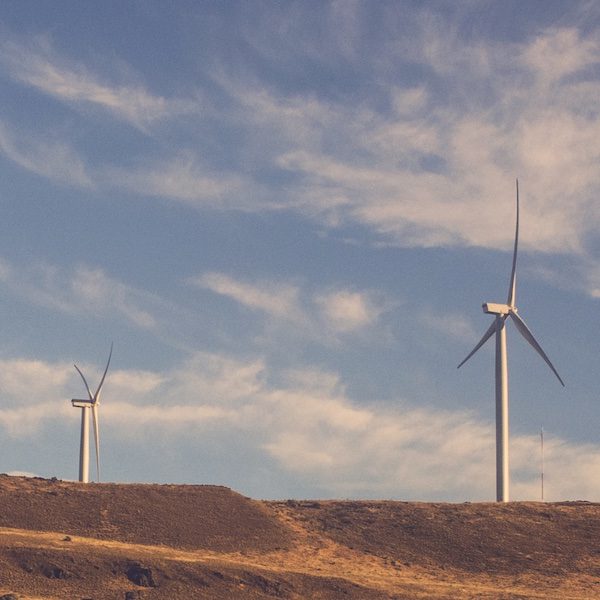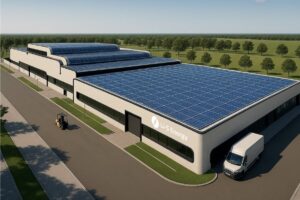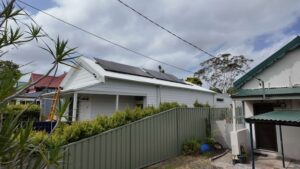We all know that meeting the Commonwealth government’s 82% renewable energy target by 2030 is no mean feat. Not to be left out, the states have also been in a shootout with their own renewable energy targets.
This necessary shift requires not only huge amounts of investment and innovation, but also a thoughtful approach to policy and public engagement.
A few months ago I wrote about the need to tell a compelling story and clearly articulate the why of the clean energy transition, in order to take all Australians on this important journey. Today, I would also argue that now is a crucial time to carefully consider some of the nuances in the how.
And specifically, to make sure we find the right balance, especially in terms of policy setting, between the need for speed of change when it comes to this essential service, and the imperative to secure the long-term buy-in of local communities across the nation.
For years, developers have used social license as a guiding principle for engaging local communities impacted by their projects, and for good reason. When done well, social license is instrumental in shaping projects around local needs and concerns, in building trust and connections between developers and communities, and in creating shared initiatives that genuinely benefit people on the ground.
There are plenty of encouraging stories. I’ve admired how some companies have put together scholarships for local students here in Australia, or the positive local impact Aquila ’s Midtfjellet wind park in Norway has had.
Many of us within the industry have witnessed first-hand how clean energy projects can change lives and communities for the better when done well. However, ignorance or even incompetence by some developers and the need for acceleration in project rollout has resulted in some state Governments proposing or adopting new mandatory rules and policies. These include the concept of community benefits, which looks to codify the amount of money a community should receive, as well as the modalities for sharing and spending those funds.
While consistent, direct financial compensation mandated and overseen by a public authority may sound fair and good in principle, we need to carefully consider any potential risks and unintended consequences before making this a general practice for clean energy projects, and before moving too far away from the nuanced social license model.
I see several potential negative effects of creating a one-size-fits-all community benefits system, especially if it dilutes micro-level understanding:
Distrust
Templatising mandatory payouts could be perceived as buying community approval rather than getting their genuine agreement or acceptance. Or, as using legislation as a blunt instrument to bulldoze projects through, even when a project would have gained acceptance on its own merits through a bespoke and consultative approach.
This is a perception we need to avoid at all costs, especially in a climate where the net zero transition is already overly politicised, and at a time when citizen campaigns discrediting projects and developers gain quick traction. Developers in the Australian market will know all too well the instant lack of trust created when you arrive at a farmer’s gate with a $50 gift card, thinking that money is going to clear a path for you.
Optics matter and we do not need new clean energy projects to be the fodder for further division when we should be rallying Australians behind what is essentially a national priority: to keep the lights on for decades to come and decarbonising our power system.
Disconnection
Policymakers making decisions on behalf of a community could achieve the opposite of the social license aim, making relationships between developers and impacted communities more transactional, less personal and less transparent.
This could potentially take away the agency and ownership that any committed developer should demonstrate in finding common ground and mutually beneficial solutions with a particular community. It also ignores that many developers already incorporate a benefit-sharing fund as part of a tailored approach based on consultation. This is much more likely to build trust and goodwill than blanket rules set in legislation that ignore any local tone by design.
Disempowerment
A one-size-fits-all approach also takes agency away from communities who may value different things and seek compensation in different ways. Those with real experiences know that many communities favour other benefits such as creating jobs, apprenticeships or scholarships, building or moving physical infrastructure or even the simple goodwill created when a generational farmer is able to remain on the land due to income directly received from the project they are hosting.
Communities may still opt for a straight financial compensation model. However, wouldn’t it be better if we reached this outcome from talking to people on the ground, rather than through a mandated scheme?
Entitlement
By codifying financial compensation for clean energy projects as the default, we run the risk of setting unhelpful expectations that communities need to be paid off for the creation of essential infrastructure.
Other infrastructure such as roads and railway lines have long been accepted as necessary and supporting the greater good. State Governments have not mandated community benefits funds for these infrastructure projects. We need to achieve this same acceptance with clean energy, without mandated compensation, or we could run the risk of unintentionally adding to the politicisation of the energy transition.
Additional complexity and cost
We cannot deny that the compensation codified into new projects will inevitably increase the complexity of projects and push their costs up, ultimately resulting in higher prices for consumers. With cost-of-living pressures and some reluctance from Australians to pay more for the transition, this is unlikely to turn opponents into advocates.
Inevitably, as new rules bed down, investors and developers may also be tempted to avoid states where projects are made more risky, lengthy and costly to deliver. Instead, they may favour those states which stick to less prescriptive or rigid approaches.
The market reality is that private capital is competing to be deployed across other markets, in other industries and with differing risk profiles. Therefore, if mandated additional costs create additional complexity and eat into returns without reducing project risk, capital will become more expensive, pushing costs up even further for consumers.
Ultimately, many of the concerns raised by communities when a new project is planned in their backyard are not money-related. They are much more likely to be around things such as perceived noise pollution, impacts on visual landscapes and ecosystems, a fear of losing control of their surroundings and a general apprehension of change being ‘forced’ on them.
What people need, therefore, is to be heard, and for their concerns and contributions to be taken on board. Case in point: none of the ten principles set out in The Clean Energy Council Best Practice Charter for Renewable Energy Projects are linked to monetary compensation.
So, the key question is this: while well intended, is this new focus on community benefits taking us down a route that will lead to unforeseen complications, resistance and a potential increase in power bills? Or can we quickly find the right balance by refining best practice in applying social license, and holding developers accountable to this?
Right now, we need to be clear on the best ways to secure the right outcomes – from projects being developed at pace with impacts mitigated, to sufficient levels of investment being incentivised, and a nation-wide consensus that making Australia a clean energy powerhouse is a good thing, for everyone.
These outcomes all link back to community acceptance. We cannot forget that it is about nuance, not sledgehammers.
Dennis Freedman is managing director of Australia & New Zealand, Aquila Clean Energy APAC








